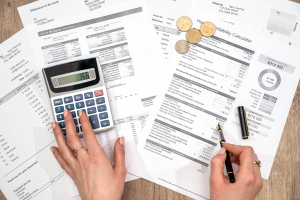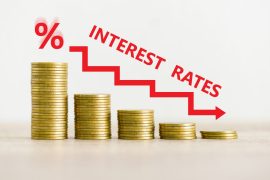In today’s fast-moving world, having access to quick funds can make all the difference—whether it’s to cover a medical emergency, manage debt, or handle an unexpected life event. That’s where personal loans often come in handy. But what if you don’t have formal proof of income? Can you still get a personal loan? The answer is yes, though it’s not always straightforward. Most lenders rely on income proof to gauge your ability to repay, so not having it can make things a little trickier. That said, some money lender Singapore options do provide more flexible loan arrangements, especially for those with non-traditional income streams such as freelancers, gig workers, or small business owners. In this article, we’ll explore how to get a personal loan without the usual payslips or income documents—and what you should be aware of before applying.
Understanding the Role of Income Proof in Personal Loans
Before exploring how someone might secure a loan without income proof, it’s important to first understand why lenders usually ask for it in the first place. When applying for personal loans, documents like salary slips, bank statements, tax returns, or employer letters help show that you have a stable source of income—essentially reassuring the lender that you’ll be able to repay the loan on time. Without this assurance, the loan becomes riskier from the lender’s perspective.
That said, if you don’t have traditional income documentation, lenders may look at other signs of financial reliability. These could include your credit score and credit history, any valuable assets you can offer as collateral, whether you have a guarantor, the amount of debt you already owe, and even your savings or passive income. These factors can help determine whether you’re still a responsible borrower, even without formal income proof.
Who Might Lack Income Proof?
Not everyone who seeks a loan fits into the neat box of salaried employment. Common groups who may not possess standard income documentation include:
- Freelancers and gig workers
- Stay-at-home spouses
- Retirees
- Students
- Unemployed individuals
- Informal sector workers (e.g., cash-based jobs)
- Small business owners with limited formal accounting
Though lacking traditional payslips, many within these categories may have alternative means of generating income or substantial assets that can support a loan application.
Options for Securing a Personal Loan Without Income Proof
Let’s explore the viable pathways available to individuals who wish to borrow money but cannot furnish income documentation:
1. Collateral-Based or Secured Personal Loans
One of the most effective ways to obtain a loan without income proof is by offering collateral. In a secured personal loan, the borrower pledges an asset (such as property, fixed deposits, gold, or vehicles) to mitigate the lender’s risk.
Pros:
- Easier to qualify without income proof
- May offer lower interest rates
- Larger loan amounts possible
Cons:
- Asset at risk if you default
- Longer processing time due to asset valuation
2. Co-signed or Guarantor Loans
Another option is to apply with a co-signer or guarantor who has verifiable income and a good credit score. This shifts the lender’s focus from your financial standing to that of your co-applicant.
Pros:
- Improves chances of approval
- May fetch better terms based on co-signer’s profile
Cons:
- Guarantor is legally liable if you default
- Potential strain on personal relationships
3. Peer-to-Peer (P2P) Lending Platforms
P2P lending platforms connect borrowers directly with individual investors willing to lend money at mutually agreed terms. These platforms often use alternative credit assessment models that look beyond income proof.
Pros:
- Flexible eligibility criteria
- Transparent terms and digital processing
Cons:
- Higher interest rates for high-risk borrowers
- Less regulated than banks
4. Credit Union or Cooperative Loans
Some credit unions or cooperatives offer personal loans to their members based on trust, relationship, and shared community values. In such institutions, traditional documentation requirements may be more relaxed.
Pros:
- More personalised lending terms
- Higher tolerance for non-standard applicants
Cons:
- Membership may be required
- Smaller loan limits
5. Loan Against Fixed Deposits or Savings
If you hold a fixed deposit (FD) or substantial savings, you may be able to get a loan against it. These loans are easier to approve, as the FD acts as security.
Pros:
- Minimal documentation required
- Low interest (often just 1-2% above FD interest rate)
Cons:
- You cannot break your FD until loan is repaid
- Loan amount limited to 75-90% of FD value
6. Alternative Income Verification
Some lenders may accept non-traditional income sources such as:
- Bank statements showing regular deposits
- Rent received from owned property
- Dividends from investments
- Pension income
These are not conventional payslips but can serve as a proxy to establish repayment ability.
Risks and Challenges of Taking a Loan Without Income Proof
While it’s technically possible to get a personal loan without income proof, it’s not without risks—both for the borrower and the lender.
Higher Interest Rates
Lenders compensate for the perceived risk by charging significantly higher interest rates. In some cases, this can double the effective interest you pay compared to someone with a salaried job and verified income.
Lower Loan Amounts
Expect to be approved for a smaller loan quantum unless you’re pledging high-value collateral.
Stricter Terms and Conditions
You may be subject to stringent repayment terms, early repayment penalties, or mandatory insurance policies.
Risk of Over-borrowing
Without a clear understanding of your income or cash flow, it’s easier to overestimate your repayment ability, leading to potential default.
Boosting Your Chances of Approval
If you’re determined to apply for a personal loan without income proof, consider these strategies to improve your chances:
- Maintain a Good Credit Score – Ensure your credit score is above 700; this alone can be a strong compensating factor.
- Demonstrate Financial Discipline – Submit bank statements showing regular savings, timely utility bill payments, or other signs of responsible money management.
- Offer Collateral – Be upfront in offering assets that can act as security.
- Seek Smaller Loan Amounts First – A lower loan quantum is less risky for the lender and easier to approve.
- Explore Microfinance Institutions – These smaller lenders are often more flexible and may be willing to take a chance on your profile.
Legal and Ethical Considerations
While obtaining a loan without income proof is possible, it’s important to remain honest and transparent. Providing false documentation, exaggerating income, or hiding liabilities is considered loan fraud—a serious offence that can lead to legal action and blacklisting by credit bureaus.
Always read the loan agreement carefully, paying close attention to the interest rate, repayment schedule, hidden charges, and penalties. When in doubt, consult a financial advisor or seek legal counsel.
Final Thoughts
Obtaining a personal loan without income proof is undoubtedly challenging but not impossible. It requires creative thinking, leveraging alternative forms of credibility, and a clear understanding of the associated risks and responsibilities.
Whether you’re a freelancer without formal salary slips, a retiree with savings, or someone temporarily out of work, there are paths you can take. The key lies in demonstrating that you are a responsible borrower—even if your income doesn’t come with a payslip attached.
As always, borrow prudently, and remember: a loan should be a solution, not the start of a deeper financial problem.
FAQs
Q: Is it legal to get a loan without income proof in the Singapore?
Yes, it’s legal provided the lender uses alternative ways to assess your repayment ability and you do not provide false documentation.
Q: Can unemployed individuals get a personal loan?
Yes, if they have a co-signer, assets to pledge, or alternative income sources such as investment returns or rental income.
Q: Will applying for a loan without income proof hurt my credit score?
Only if your application is rejected multiple times or you default on repayment. It’s advisable to check your eligibility before applying.
Q: Can I use my CPF (in Singapore) as proof of funds or repayment ability?
Generally no—CPF savings cannot be withdrawn freely, so they are not considered valid for loan repayment by most financial institutions.






